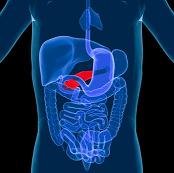Advertisment
Survival in advanced pancreatic cancer significantly improved with nab-paclitaxel

by Bruce Sylvester – taken from the NEJM (New England Journal of Medicine) – Addition of nab-paclitaxel to gemcitabine for treatment of advanced pancreatic cancer has resulted in significantly higher survival among patients when compared to those who received gemcitabine monotherapy. The results of a new study were published on Oct. 16, 2013 by The New England Journal of Medicine (NEJM).
The investigators enrolled 861 patients. They conducted the study at 151 centers in 11 nations. They reported that the 431 subjects assigned nab-paclitaxel plus standard-of-care gemcitabine achieved significantly improved overall survival, progression-free survival, and drug response rates when compared to the 430 subjects assigned to gemcitabine monotherapy.
“This large, randomized, international, phase 3 study showed that the nab-paclitaxel plus gemcitabine led to a significant improvement in survival at all time points,” said lead author Daniel D. Von Hoff, M.D., Physician in Chief and Director of Translational Research at TGen (Translational Genomics Research Institute in Phoenix. “The rate of survival was significantly higher in the nab-paclitaxel-gemcitabine group than in the gemcitabine group,” he added.
On Sept. 6, 2013 the U.S. Food and Drug Administration (FDA) approved nab-paclitaxel under the brand name Abraxane for use in advanced pancreatic cancer patients. Abraxane previously was approved by the FDA for use in the treatment of metastatic breast cancer (2005) and advanced lung cancer (2012).
Abraxane wraps traditional chemotherapy, paclitaxel, in near-nano sized shells of albumin, a protein that the tumor appears to recognize as food. After it enters the tumor, Abraxane releases chemotherapy and kill cancer cells.
The investigators reported that subjects treated with Abraxane plus gemcitabine lived an average of 1.8 months longer than those treated with gemcitabine alone. They also achieved delay in tumor growth (progression-free survival) of 1.8 months later than the participants who received gemcitabine monotherapy.
They reported that 35 percent of the Abraxane subjects survived more than 1 year, a 59 percent increase over the 22 percent of those gemcitabine monotherapy subjects who survived more than 1 year. And more than twice as many subjects, 9 percent, who also received Abraxane survived more than 2 years, compared to 4 percent of the gemcitabine monotherapy subjects.
Addition of nab-paclitaxel resulted in increased peripheral neuropathy in a small proportion of patients and was rapidly reversible by temporarily halting the drug and reducing its dosage. None of the patients experienced severe neuropathy.





